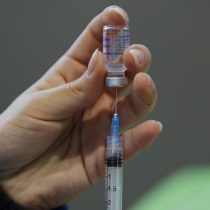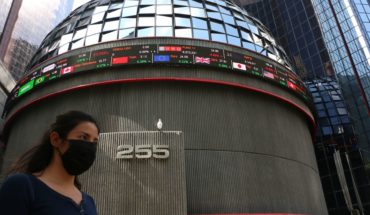
The vaccination process in the country remains among the most successful in the world, but the uptick in new contagions experienced this day creates uncertainties and the medical community calls for caution.
A month ago the bars, restaurants and cafes reopened in a dozen neighborhoods of the capital and this week the curfew was delayed by an hour, which now runs between 22.00 and 5.00 hours.
Hospital intensive care units begin to decongest after two months saturated by the scourge of a second wave that was aggravated in March, after the southern summer holidays, and forced 90% of the population to confine.
Now, restrictions are eased and the authorities are confident that the vaccination process, one of the most successful in the world, will do its effects: “We have vaccinated 7.6 million people with two doses, equivalent to 50.2% of the target population,” Health Minister Enrique Paris celebrated on Thursday.
Chile is the second largest in the world with the highest percentage of the inoculated population with two doses behind only Israel and surpasses other vaccination giants such as the United States and the United Kingdom and all other Latin American countries, according to data from the University of Oxford.
With the exception of Uruguay, which managed to administer two doses to 27% of its population, the Chilean brand far exceeds that of other countries in the region such as Argentina (4.6%), Mexico (8.6%) Brazil (8.3%).
However, the country has recorded 7,680 new cases in the last 24 hours, the highest number in May, which has led health authorities and experts to take advances in vaccination with caution.
“Today’s figures are extremely worrying. The number of new and deceased cases requires a rething of governance and strategy,” they said on Twitter from the Medical College.
“We still have a lot of uncertainties to think that the pandemic is going to be over soon. 50% remains a low figure, we need to vaccinate at least 75% of the population to achieve herd immunity,” said Efe Nicolas Muena, vaccine expert and virologist at the Science and Life Foundation.
The country accumulates more than 1.3 million contagions and more than 28,000 deaths, and maintains total quarantine in many neighborhoods, as well as border closures, curfew and closed cinemas, museums and sports facilities in most of the country.
This scenario, and the rapid advancement of immunization, has led various voices to call for greater lifting of restrictions and end confinements, keeping them alone in critical cases.
“There is a very serious mental health problem because millions of Chileans live in small homes, they are desperate to get out. That is why we have asked the Government to make changes,” said Deputy Juan Antonio Coloma of the Independent Democratic Unit (right).
Miguel O’Ryan, an infectologist and professor at the University of Chile, explained to Efe that the vaccine used mostly in Chile, that of the Chinese laboratory Sinovac, is “of less global protection than Pfizer’s”, so the Chilean situation should not be compared to that of countries that have similar figures with other vaccines.
According to a study disseminated by the Chilean Government, the Sinovac vaccine, which is inoculated and requires two doses, prevents 67% of contagion, compared to 95% effectiveness of Pfizer/BioNTech or 80% of AstraZeneca, two vaccines that are also given in Chile but minorityly.
For now, all people over the age of 30 have been able to access one of these vaccines, voluntary administration, which have also been received by health workers, chronically ill and essential workers since the process began last December.
Early and diversified negotiation, as well as the extensive primary care network, are two of the key factors that, according to experts, have streamlined immunization.





